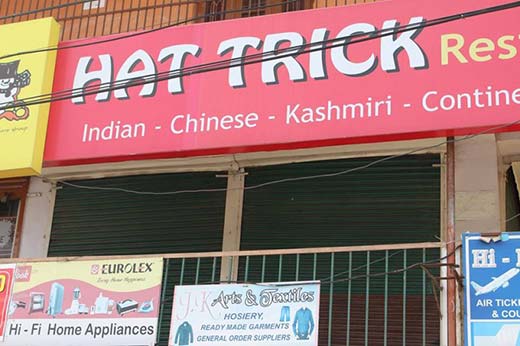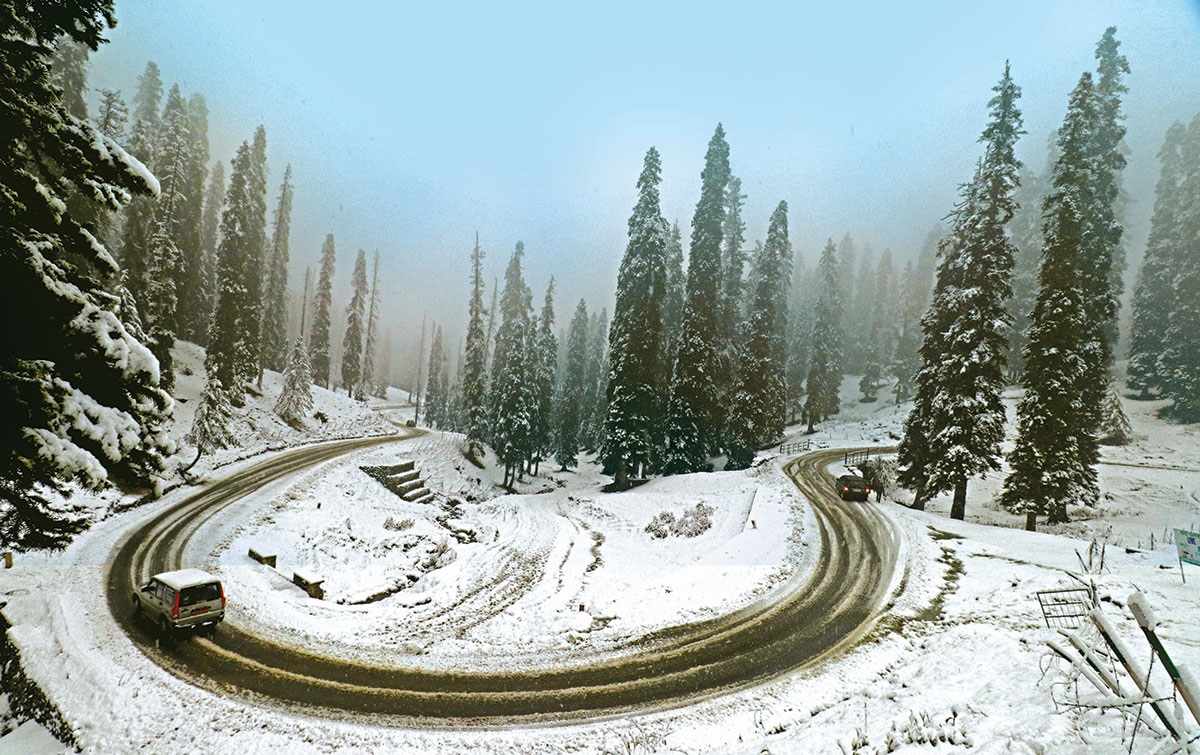Amid the debate over cockroaches crawling out of the biryani in Srinagar, R S Gull argues that one of the key factors for a society’s morbidity is what it is being fed by market, growers, and the systems
 “Did you expect an elephant?” a police officer reacted to his subordinate for breaking the news that a group of Maharashtra tourists have found a cockroach in Hatricks’s biryani that was served to them in Hazratbal. As the news set the virtual world afire, the real life knew the weird normality. A group of youth delivered 1000 ‘get well soon’ letters to the outlet. Social networking sites built part of the pressure to make officials act. “I write cockroach…” a Delhi reporter wrote on his FB wall, “…Google says do u mean Hattrick.” The governance structure took a few days to “seal” the outlet.
“Did you expect an elephant?” a police officer reacted to his subordinate for breaking the news that a group of Maharashtra tourists have found a cockroach in Hatricks’s biryani that was served to them in Hazratbal. As the news set the virtual world afire, the real life knew the weird normality. A group of youth delivered 1000 ‘get well soon’ letters to the outlet. Social networking sites built part of the pressure to make officials act. “I write cockroach…” a Delhi reporter wrote on his FB wall, “…Google says do u mean Hattrick.” The governance structure took a few days to “seal” the outlet.
A premier brand, Hattrick rise has been an impressive one. Starting with one shop, it is a chain of 16 outlets now. It jumped into the restaurant business and created three eateries. Two years back, it opened a school. With J&K’s most incompetent Education Minister Tara Chand on his side, its promoter Showkat Choudhary famously said the Kashmiri kids are generally malnourished and his school will feed them his products to manage the calorific deficit! The group has recently launched a packaged milk plant.
A business’s growth is normal and must be appreciated in Kashmir, a place stagnated by conflict. But if a business cannot manage its own kitchen, how can it be trusted with a society’s health?
This is for the second time that Hattrick is facing a hygiene issue, formally. Convention wisdom suggests a promoter would never use foul means to kill its own brand. At the worst, it seems just an accident. It seems Hattrick’s manufacturing facility at Zakoora has more work, few hands and obviously inadequate safeguards, its modernity and farengri-import claims notwithstanding.
Cockroach episode, however, explains the lackadaisical and chalta hai attitude that businesses have standardized for Kashmir’s consumers. They have, over the years, managed getting system on board to continue their malpractices for making quick bucks. In certain cases, they even bit the system when it tries to rediscover its responsibility.
One of the notoriously famous incidents that took place during Omar’s era was when Srinagar Municipal officials raided the kitchen of Broadway Hotel. They discovered stinking and rusty kitchen-ware and tried to follow the rulebook. Its promoter being state Congress’s treasurer, the health officer was immediately removed.
Compared to the rest of India (not obviously the world), and even Jammu city, the businesses here are feeding on the weird food habits of the population. In absence of a professional monitoring system, Kashmir feeds on the worst, be it fruits, vegetables or cooked food.
Take the case of the apple that makes Kashmir India’s main apple basket. The city gets the C-grade at a cost it pays that A-grade rarely fetches in India’s metropolis. Interesting story is that the inflated cost goes to the middleman and the retailer and not to grower.
People spending some time in Jammu feel a clear distinction when they go to fetch the vegetables. It is clean in Jammu and the buyer has the option of making choices unlike Srinagar where seller decides for the consumer, both quality and the price. Here the best home grown vegetable goes out and non-local produce dominates the market!
Who cares about the menacing practice of artificial ripening of fruits? Retailers and the middlemen have evolved their own facilities which are off the municipal radars. It needs no acknowledgement that certain chemicals used in the artificial ripening are obviously carcinogenic.
For the last many decades, Kashmir is facing acute shortage of milk, poultry and the mutton. Everybody knows the use of hormones that are injected into the cows for improving their yield. Similar protein creating injections and powders into the poultry advances crop cycling. And the costs are enormous. Apart from serious health issues, they are now being directly held responsible for advanced puberty of school-going girls. And nobody has ever tried to halt the practice of Kashmir consuming the aged poultry layers that usually goes into dog food! We all get this meat at a premium.
Local poultry farmers do not use either of these artificial growth hormones but they are at the other side of the priorities of the retailers and the middlemen dictating their choices on consumers. Even officials have not supported the local poultry farmers in publicizing this fundamental difference in rearing of birds.
People going to some of city’s best restaurants will never know that one key factor for the tasty dishes they are served are chemicals. The cooks in most of these restaurants use an overdose of chemicals, like mono-sodium glutamate, commonly called tasting powder, to improve the colouring and the taste, not to mention of the use baking ammonia by local bakers, to make their products crispy and delicate.
The day Kashmir decides to stay healthy, it will not require a Lal Singh with his foot in the mouth. Instead, it requires clean tapped water, least fertilizer-used rice and vegetable, mutton and milk from Poonch and Doda mountains and poultry from its backyard. This all means a business of Rs 3500 crore that Kashmir voluntarily gives out, every year to Punjab and Haryana. By all means health is wealth.















